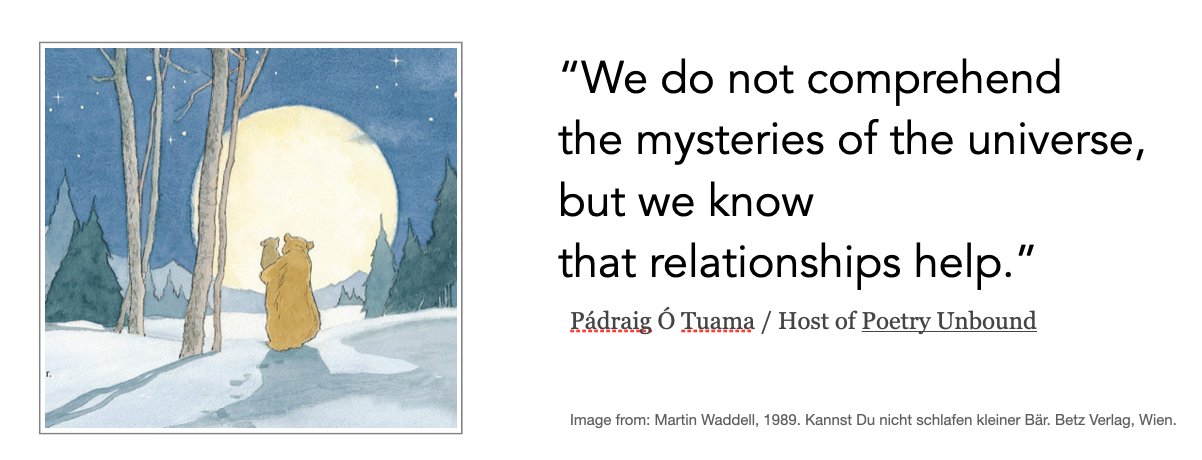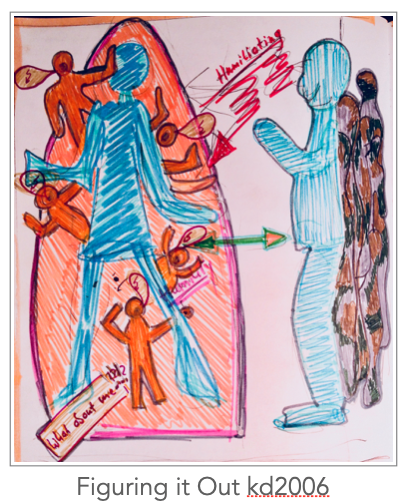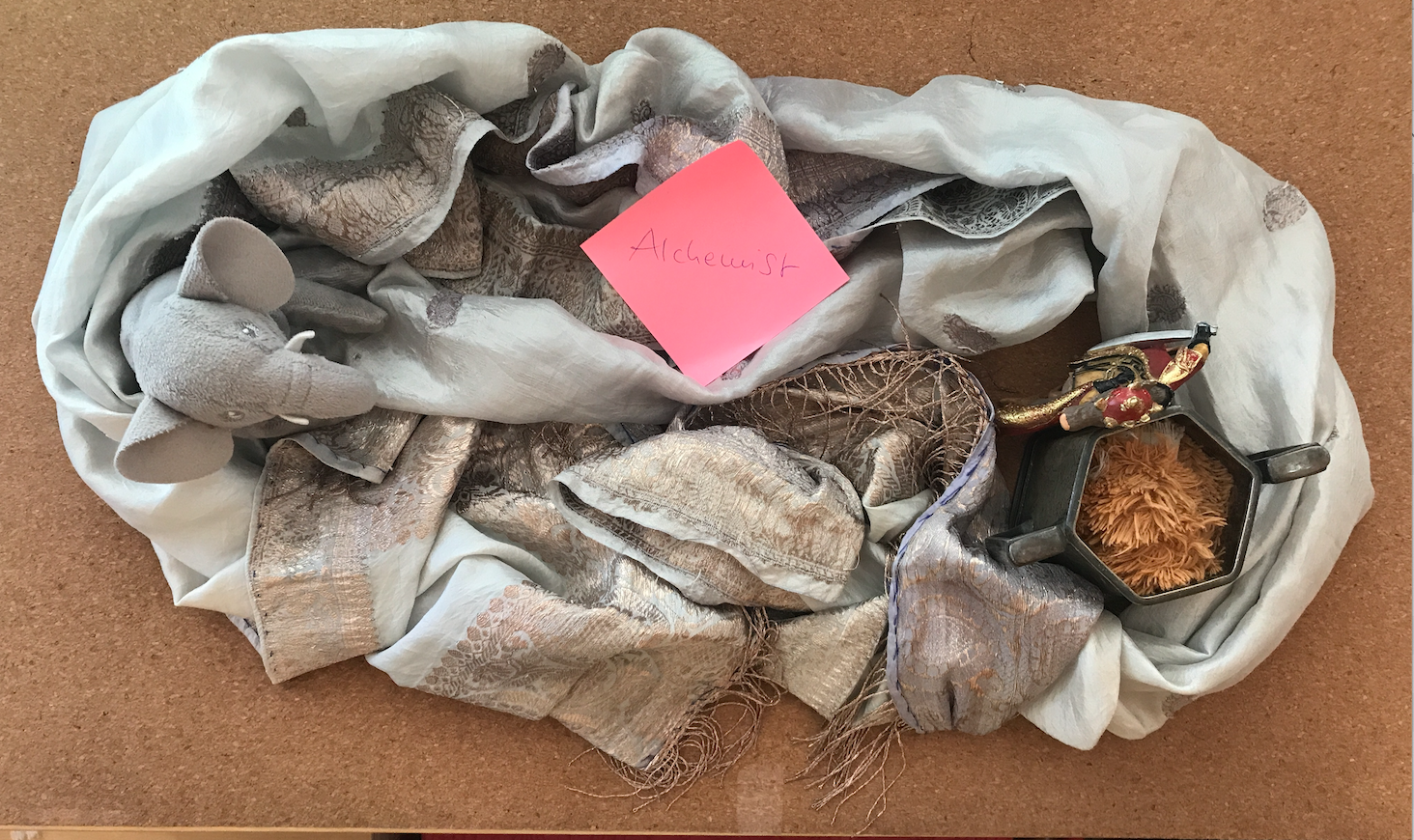Systemic Trauma Counseling
! Context and History Matter !
Traumatic events affect individuals and by extension their relationships. The systemic nature of trauma is as powerfully influential as the symptoms and issues you struggle with. Relational exchange between system(s) and their individuals fuel intractable conflicts. Close ones, co-workers, neighbours, and so forth, exchange relational currency of their passed-on generational heritages unknowingly. If unresolved, over time, strive and struggle perpetuate a plethora of physical symptoms; known as ACEs. Individuals, families, communities, and societies suffer.

It may seem like a daunting task to tip your toe into layers of embodied (often unknown) trauma. Yet, gradual change through measured ‘toe-by-toe’ tipping, combined with trauma sensitive, multi-modal, systems-oriented processing methods, will gradually mend the fragmentation resulting from broken connections. From there, innate body-mind-soul mending can take root.
Human infants and children are the most immature of creatures. They adapt to any –and all– early life circumstances. Why?
In contexts of goodness and attunement we thrive. In contexts of peril we survive by adapting. If, for an infant/child, care is offered reliably and predictably, the world is safe. If care was chaotic or absent, needs remained unmet. Any experience (for the immature Little One) of too soon, too long, too much, too sudden –and importantly– too little spells peril. Alan Shore, in Affect Regulation and the Origin of the Self, writes that little humans need attuned care (at least) for the “first 1000 days after conception.” * If this is missing, developmental trauma looms. Complex Post Traumatic Stress Disorder is the name of the likely outcome of prolonged, unmet needs without repair, suggested first by Judith Herman in Trauma and Reccovery.**
Indeed, without a predictable, stable, mature (caregiver/s) brain present to an infant’s stress, Little Ones experience overwhelm they cannot self-regulate, nor can they learn in the absence of a mature brain.

Adult absence, neglect, violations, and unrepaired mismatches remain at the core of suspicious, guarded, and disorganised BodySelfs. Little Ones adapt to their overwhelm by –knee jerk reflexive– survival responses driven by the brain stem. Tread and danger will be encoded in the depth of the brain, the amygdala. More often than not, this fear architecture remains with us, and a ready sense of danger reflexively reacts.
Any of us (who are even reading this!) still likely have powerful autonomic-experiences, fight, flight, fawn, collapse and/or freeze, to content with. Survival patterns (a.k.a., insecure, avoidant, & disorganised attachment styles) are tell tales of body-bound memories of yore; memories of a world that felt (was) a lonely and/or dangerous place.

In sum, complex (developmental) trauma arises where peril is inflicted, and/or not prevented. Successful adaptive survival repertoires may feel stuck, even cursed. After all, the same old patterns yield the same pain, over and again.
But wait, even one experience of Systems Counselling can illuminate unaddressed trauma, across your life span, no less.
If you choose this, your first meeting with me (a 2 hour session) will be collaborative. We will co-regulate as we gently identify some of your adaptive strategies. At large, they may be outdated, hence, they get you in trouble. Nonetheless, we will respect and honour them to be acting as needed, on your behalf! After all, they were your protective super powers in childhood. We will, as you since have matured, invite your quick-to-rise Inner World Parts (Little Persons) to defer to you –the Present One– to let you sense, regulate, apply good judgement, and handle (most) situations of your everyday live with (trustable!) agency. All this will be seasoned by a robust taste of a touch of earned safe attachment (to your parts and to me).

Of course, this process unfolds on a learning curve. It needs practice, inclined sparring partners, and (most importantly!) kindly and committed self-respect and care. Even with those in place, it will not be successful all the time. Depending on what we are able to cover in the first, a second session (2 hours) Focuses on expanding the biographical map by exploring generational heritage and legacies, i.e., the biographical, cultural, social, and historical experiences of your ancestors (known or deduced from historical context.) This will illuminate what generational transmissions contribute to your issues(s). Broken Connections in the lineage? Secrets? Hardships? Ungrieved losses?
This Nested Worlds Map explores territories we, often unaware, belong to.The maps ovals and historical iterations (generational transmission) are the template from which new questions about your issue(s) will arise. By the way, online research is great in service of seeing ‘beneath/behind known family lore’. What you will learn often reflects what your specific nested worlds have transmitted forward. It also helps to speak with parents. Albeit, aunts, uncles, and, especially, cousins, are often more willing to ‘spill your family’s beans.’
New questions! … And Then What?
Contextual seeing paves your way into a Constellating Systems Group Event
If groups are not your ‘thing’, a one-on-one Table Top Constellations with me, and my playful co-workers, is a means to explore and engage your issue or quest. This (mostly online) work is decidedly right-brain informative and often deeply moving. It has transformative power.

This photo shows the concluding arrangement of a constellation done by a man, 64 years of age, named Ernest.
Ernest was nearing retirement and dreamed of becoming a writer. Before he even began he felt defeated. Among other movements, we invited representations for resources and allies, that might have his back. Ernest named two writers whom he admired. He also felt, and invited, a Little Person that just wanted to hide. Ernest chose representations for each: The fiery author became the Mouse King with a long sword and grim expression. Ernest felt, that this one would protect his Most Vulnerable, the Littlest Person. When I inquired about that Little Person’s experience, Ernest shared how, as a child, he had been mercilessly mocked by his mother and father when he showed any artistic leanings. Invited to feel just that, Ernest tucked a tattered little bear into a small pewter cup, visible only from above, as in this photo. He positioned the Mouse King in front of the cup, asking him for fierce protection.
Ernest’s second resource was a well-known female author, admired for her steadfast, kind, and heart-based writing about traumatised humans. He chose a comfortably seated elephant. He mused that she would ground the mouse king’s protective fervour with mama-elephant sensitivity and loyalty. Then, Ernest arranged all of them inside a lovely Indian silk scarf, whereby the gentle containment became yet another resource for all. When all felt just right to him, we sat in silence, gazing for a while, taking in the image. Suddenly, with a flourish, he wrote and added the magenta sticker, reading alchemy. “For good measure”, he grinned.
With a bit of practice (and good knowledge of basic systemic tenets) Table Top Constellating can be self guided and paced. It can be an accessible method to explore open questions, process unresolved issues, and anchor systemic dynamics as visibly externalised potentials.